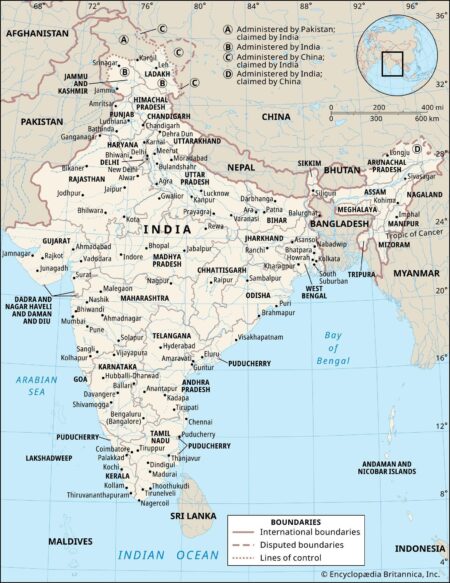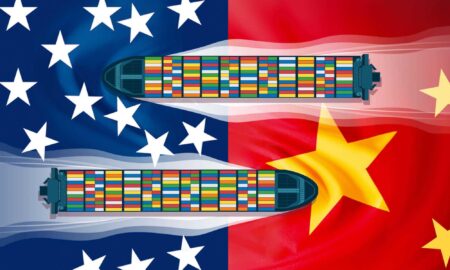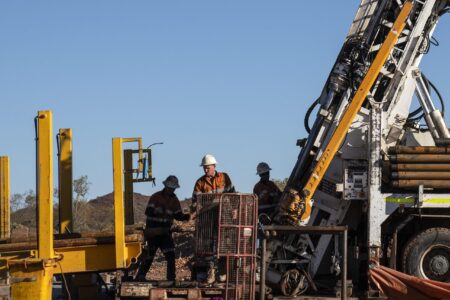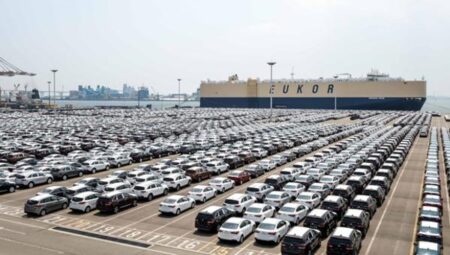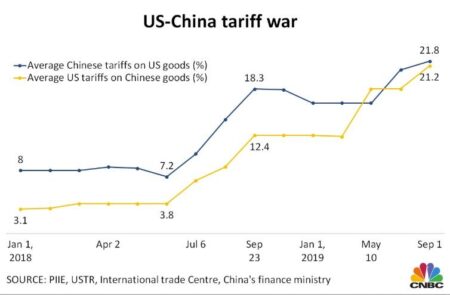Czech officials joyfully welcomed a surge in oil deliveries from Western sources, marking a pivotal move away from reliance on Russian energy. This exciting shift unfolds against the backdrop of ongoing geopolitical tensions, with the goal of bolstering national energy security.
Browsing: economic impact
China has voiced its apprehensions regarding former President Trump’s ambitious $1 trillion Pentagon budget, perceiving it as a potential threat to regional stability. Officials warn that this surge in military spending could heighten tensions across the Asia-Pacific, emphasizing the urgent need for diplomatic solutions
Australians are becoming more wary of the United States, as trust wanes in the wake of Trump’s tumultuous tariffs and contentious choices. This evolving sentiment highlights rising apprehensions about America’s dependability as a global partner.
Nissan has revealed a major cutback in the production of its popular Rogue model for the US market, attributing this decision to the rising tariffs on imported vehicles. This shift highlights the hurdles that automakers are navigating in an ever-changing landscape of trade policies
Shares of India’s IndusInd Bank surged as investors reacted positively to news that the impact of a recent accounting lapse was less severe than anticipated. What initially sparked concern has now been largely addressed, calming investor anxieties and restoring confidence in the market.
In the escalating U.S.-China trade war, students and tourists may find themselves caught in the crossfire. As tensions rise, educational exchanges and travel are at risk, potentially impacting thousands and straining cultural ties between the two nations.
Vale has announced a dip in iron ore production for the first quarter, primarily attributed to the heavy rains sweeping across Brazil that have hampered mining activities. This weather-related disruption poses significant challenges for the company as it strives to sustain its production levels. With these adverse conditions in play, concerns are mounting regarding future supply stability.
Homebuyers in Canada are facing tough times as soaring interest rates and escalating housing costs force many to step back from the market. This shift is not just tightening household budgets; it also poses a risk of cooling the overall economy, raising alarms among policymakers and economists alike.
Boeing’s crucial involvement in strengthening Russia’s aerospace industry sparks intriguing questions about the future of its operations within the country. As geopolitical tensions rise, experts are left pondering: will this aviation titan ever find its way back to doing business in Russia?
Argentina is poised for a record wheat harvest this season, bolstered by favorable weather and an increase in plantings. Experts suggest that extending cuts to export taxes could further enhance production and stimulate the economy, benefiting farmers nationwide.
Ford Argentina reported a remarkable 99 percent increase in sales for March 2025, signaling a robust recovery in the automotive market. This surge reflects growing consumer demand and revitalized production efforts, positioning Ford for a strong year ahead.
A recent analysis by CNBC reveals that producing a “Made in the USA” iPhone could raise its price significantly. Estimates suggest costs could jump by over $200 per device, reflecting higher labor and manufacturing expenses domestically.
Germany’s Friedrich Merz has warned that proposed tariffs by former President Trump could ignite a financial crisis, jeopardizing global trade stability. He emphasized the need for diplomatic solutions to avoid escalation and protect economic interests.
In response to the recent tightening of auto tariffs by the United States, Canadian Prime Minister announced that Canada will implement matching tariffs. This move is aimed at protecting Canadian industries amid escalating trade tensions between the two countries.
India has asserted its commitment to fair trade practices following Donald Trump’s decision to impose a 90-day pause on tariffs. The Indian government emphasized that negotiations should not occur under pressure, reaffirming its stance on equitable economic dialogue.
The ongoing US trade war may lead to a significant shift in global trade dynamics, as experts suggest Chinese goods could increasingly find their way into European markets. This trend could reshape supply chains and impact economies on both sides of the Atlantic.
Australian miners are poised to benefit from China’s new restrictions on rare earth exports. As Beijing tightens its grip on this strategic resource, Australian firms are expected to fill the supply gap, bolstering their market position and boosting revenues.
Japan faces a potential loss of $17 billion in car exports if the United States implements proposed tariffs, according to the UN trade agency. This move could significantly impact Japan’s automobile industry, which is a vital part of its economy.
As the U.S.-China tariff war intensifies, Canadian consumers may face rising online shopping prices. Experts warn that increased tariffs on Chinese goods could lead to higher costs for retailers, which might be passed on to Canadian shoppers.
In a recent decision, the Biden administration announced that phones and computers will be exempt from the proposed 125% tariffs on Chinese imports initially suggested by former President Trump. This move aims to alleviate pressure on consumers and tech companies.












